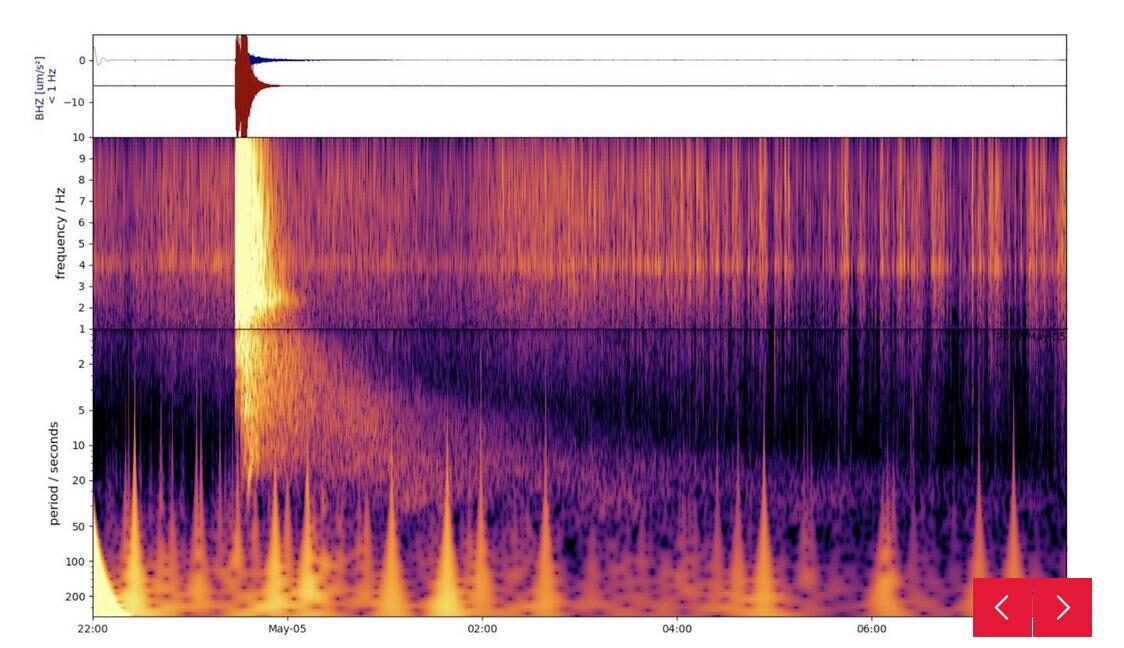
Comment: Notably the two largest were recorded more recently.
InSight was sent to Mars with a highly sensitive seismometer, provided by France's Centre National d'Études Spatiales (CNES), to study the deep interior of the planet. As seismic waves pass through or reflect off material in Mars' crust, mantle, and core, they change in ways that seismologists can study to determine the depth and composition of these layers. What scientists learn about the structure of Mars can help them better understand the formation of all rocky worlds, including Earth and its Moon.
A magnitude 5 quake is a medium-size quake compared to those felt on Earth, but it's close to the upper limit of what scientists hoped to see on Mars during InSight's mission. The science team will need to study this new quake further before being able to provide details such as its location, the nature of its source, and what it might tell us about the interior of Mars.

The large quake comes as InSight is facing new challenges with its solar panels, which power the mission. As InSight's location on Mars enters winter, there's more dust in the air, reducing available sunlight. On May 7, 2022, the lander's available energy fell just below the limit that triggers safe mode, where the spacecraft suspends all but the most essential functions. This reaction is designed to protect the lander and may occur again as available power slowly decreases.
After the lander completed its prime mission at the end of 2020, meeting its original science goals, NASA extended the mission through December 2022.




Comment: See also:
- Cosmic climate change: 'Space plasma hurricane' observed in ionosphere above North Pole!
- Cosmic climate change: Is the cause of all this extreme weather to be found in outer space?
And check out SOTT radio's: MindMatters: The Holy Grail, Comets, Earth Changes and Randall Carlson